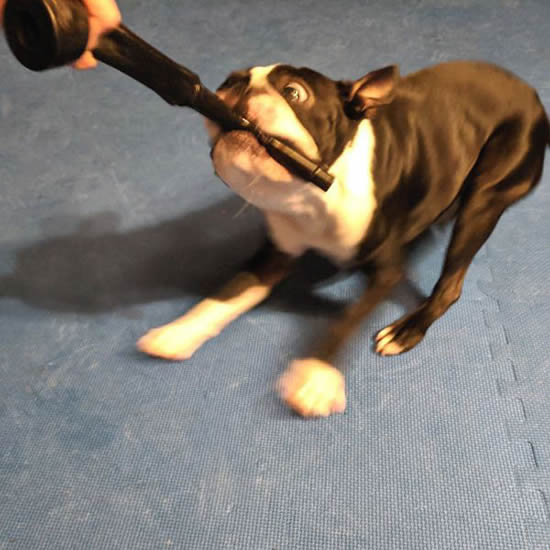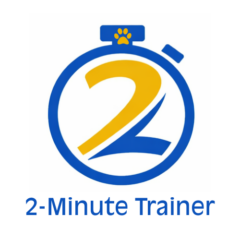Your dog doesn’t care whether he’s “good.” Good is not a dog goal. Dogs have no “higher purpose” or ambition in life. They have no “moral fiber” because it’s just not a dog thing. Right and wrong, good and bad – those are people things. Dogs don’t care.
What dogs really care about

Dogs do care about some things: you, food, comfort, toys, playing. All of those are tangibles. We don’t know what dogs actually think about, but we’re pretty sure it’s not good and evil.
It’s also a big stretch to attribute “spiteful” tendencies to dogs. So many people think their dogs act out when alone due to “spite” or “revenge.” Not true. Dogs act out either because they’re suffering from separation anxiety, or because the impulse to act is more rewarding than not. Dogs always do what they find most rewarding.
No difference between good and bad
Let’s say the dog is craving attention. She knows you fuss when she turns over the wastebasket. She’s going to turn over the wastebasket to get your attention. That’s a dog equation. Attention is all good – no difference between positive and negative. The nebulous concept of good is not a dog goal.
“I shouldn’t turn over the wastebasket because Mom told me not to” is a people thought. Dogs don’t really look into the future, or recognize consequences of their actions. A classic example is the dog who’s punished when the owner discovers a “mess” on the floor. Punishing the dog after the fact doesn’t teach the dog not to mess in the house. It teaches the dog that bad things happen when Mom discovers the mess. Therefore: hide the mess. Which is later discovered behind the couch.
Being good is not a reward
For people, knowing you’ve done the “right” thing, even in difficult circumstances, is satisfying and rewarding. For dogs, not so much. We’re constantly reminding people to “Pay Your Dog!” When your dog does make a good decision – let him/her know. Every single time.
The “pay” doesn’t have to be food. Playing with a toy, a vigorous scratch behind the ears, sincere praise all work, depending on the situation. Let your dog know that you like what he’s done – even if all he’s doing is sitting quietly while you’re busy working from home. Take the time to reward “good” behavior.
True dog goals
Your dog doesn’t care about “good.” He cares very much whether you pay attention. If you pay extraordinary attention to the behaviors you like, you’ll see more of them.
It takes conscious thought to praise your dog for doing stuff you like. If your high-alert dog finally lets a leaf blow down the street without comment, it’s easier to just appreciate the quiet than to get up, get a treat, and “mark” the behavior. But if you don’t – how does your dog know it was “good?”
Clearly communicate “good” to your dog and she’ll find it more rewarding every time. It’s not easy to remember, but it’s worth it. (We’ve talked about clarity before, and it’s still important!)
It’s even harder to ignore the stuff you don’t like. It’s upsetting when you realize that, despite what you’ve tried so far, your dog still doesn’t understand. But if you only “mark” the naughty stuff, that’s what you’ll see more of. That’s the way dogs think.
Good is not a dog goal. Being happy is. You’ll both be happier with clearer communication.
